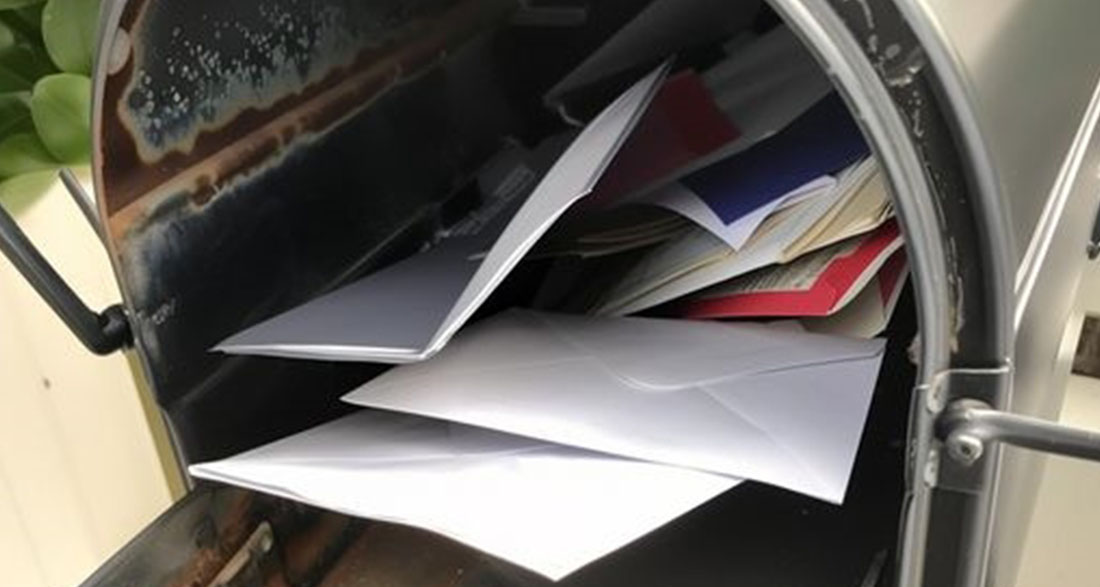When my ten-year-old daughter, Lily, suddenly got really interested in checking the mailbox, I thought it was just a cute little phase. I had no idea that those trips to the mailbox would uncover a secret that would bring me to tears and change our lives forever—and for the better.
My name is Erin, and I’m a 40-year-old single mom, completely devoted to my daughter, Lily. Ever since her dad passed away three years ago, it’s been just the two of us. Lily is my everything—a bright and curious girl who fills our home with joy and laughter. We’ve created a cozy life together, and I work from home as a freelance graphic designer so I can spend as much time as possible with her.
One evening after dinner, Lily asked if she could check the mailbox. It was a bit strange since she’d never shown any interest in the mail before. Normally, she’d be more excited about dessert or her favorite TV show. But I didn’t think much of it and handed her the key. She dashed outside with a huge smile, like it was the most exciting thing she’d done all day.
The next day, she asked again if she could check the mail, and I noticed she was getting more and more excited about it. This quickly became a daily routine, with her eagerly running to get the mail every evening. By the fourth day, I started wondering what had sparked this new habit.
I began to notice small changes in her behavior. Lily, who was usually open and cheerful, had started acting a bit secretive. She spent more time in her room, and her usual laughter seemed quieter, as if something was on her mind. When I asked if she was okay, she smiled and said she was fine, but there was something different in her voice—like she was hiding something.
One night, as I was tucking her into bed, she asked me a surprising question: “Mom, can people send letters to each other even if they don’t really know each other?” I told her they could, and explained that letters could even help people become friends. She seemed happy with my answer but didn’t say anything more.
The next morning, I noticed her slipping something into her backpack before school. When I asked what it was, she quickly said it was for a school project and changed the subject. I was curious but decided not to push her. However, I was starting to get worried about her growing obsession with the mailbox. She wouldn’t let me check the mail anymore, insisting it was a secret.
I couldn’t take the suspense any longer. After she left for school one morning, I decided to see what was going on. I nervously opened the mailbox, half-expecting to find something troubling. But what I found instead were several neatly folded letters, each addressed to our mailwoman, Mrs. Thompson.
As I opened the first letter and began to read, my eyes filled with tears. Lily had been writing to Mrs. Thompson, offering her comfort and friendship after learning that she had lost her daughter. Her letters were full of warmth, sharing little stories from her day and offering kind words.
One letter talked about how she’d learned about butterflies at school and included a colorful drawing. Another described how we had baked cookies together and wished she could share them with Mrs. Thompson.
Among Lily’s letters, I found one from Mrs. Thompson. She thanked Lily for her sweet words and said how much they meant to her during such a hard time. She wrote that Lily’s letters had brought a bit of light into her life, making her loss a little easier to bear.
I was overwhelmed with pride and emotion. My daughter’s small act of kindness had made such a big difference in Mrs. Thompson’s life. That evening, when Lily asked to check the mailbox, I handed her the key with a smile and said, “You have the biggest heart of anyone I know.”
From then on, I encouraged Lily to keep writing to Mrs. Thompson. Eventually, we invited her over for tea. We spent the afternoon sharing stories, laughing, and enjoying Lily’s homemade cookies. As I watched them connect, I realized just how powerful small acts of kindness can be.
Seeing Lily and Mrs. Thompson bond showed me that even the simplest gestures can lead to the most beautiful friendships. Lily’s compassion didn’t just comfort Mrs. Thompson—it also reminded me of how much we can impact others, often in ways we never expect.
That evening, as we sat on the porch, Lily asked me, “Mom, do you think we’ll always be friends with Mrs. Thompson?” I hugged her and said, “Yes, sweetie. The kindness and love you’ve shown will make sure of that.” Holding her close, I felt a deep sense of gratitude for the lesson Lily had taught me—that sometimes, the simplest acts of kindness can lead to the most meaningful connections.
Share your thoughts in the comments down below!

